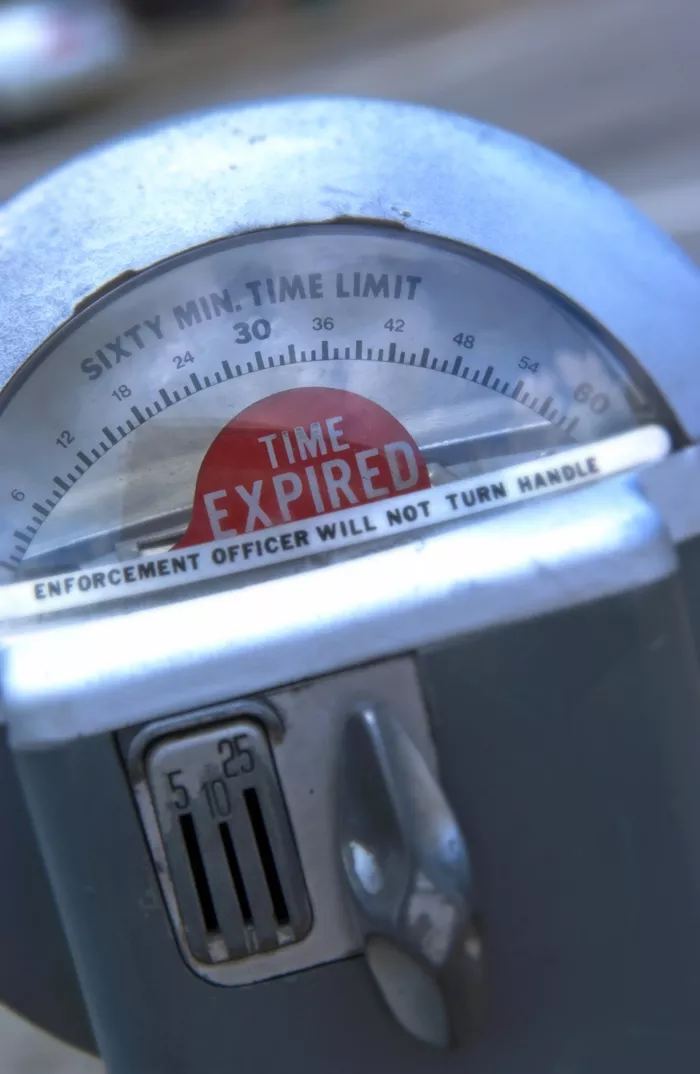The slackers at News Hits typically save our pocket change for a rainy day. But knowing our track record with parking meter violations downtown, we’ll soon be shelling out extra quarters to settle our debt with the city. That’s because Detroit Emergency Manager Kevyn Orr’s office will soon enact higher fees for every parking violation in the city.
In March, Orr first proposed changes to the rate structure of the city’s parking meter fines as a way to boost revenue.
Weeks later, he called a special public hearing to ensure that residents and business owners could have their say on the plan. According to published reports, a few dozen people turned out, including some who blasted the plan as a foolish deal when half the city’s parking meters are broken, and many employees downtown have limited options to park besides at a meter.
In the words of Detroit COO Gary Brown, the public outcry over the city’s proposed hike in parking fines would not fall “on deaf ears.”
That was his response at the conclusion of the hearing, which would, among other things, increase the fine for an expired parking meter from $20 to $45.
According to the Detroit Free Press, Brown told the audience: “I can assure you they haven’t fallen on deaf ears. We will take a look at all the comments.”
He added, “I don’t want to mislead anyone. There needs to be some action taken.”
He’s right. The city is in dire need of increased revenue as it prepares to exit bankruptcy.
But to the cranks at News Hits HQ, it seems, the public — who decried the city’s bevy of broken meters and said the increases could deter people from spending time downtown — was in fact misled by Brown: Nothing from the order issued by Orr’s office has been changed.
“No changes,” says Orr spokesman Bill Nowling.
Asked by News Hits about the city’s rationale for the rate increases, Nowling said in an email, “Rates put Detroit in line with other cities for parking fines.” The city has previously said the move would generate an additional $6 million annually.
Nowling didn’t respond to questions about what, if any, comments from the public hearing had been taken into consideration by Orr’s office. (Perhaps it was simply a technicality, considering Orr has sweeping powers under the state’s emergency manager law to implement such a move on his own.)
The changes, which are expected to take effect June 1, would eliminate the city’s practice of reducing a fine by $10 if payment is received within 10 days of a ticket being issued.
Besides the expired meter fines, other violations, including blocking fire hydrants, double parking, blocking a crosswalk, and more, would also increase to $45. The fines would spike to $65 if they’re not paid within 30 days.
Detroit’s rates are undoubtedly low compared to other cities: According to a report from SFPark.org, the city’s expired meter fine of $20 was among the bottom tier of large cities. Some cities have lower rates, though: St. Louis ($10), Nashville, Tenn. ($11), Miami Beach, Fla. ($18). Comparatively, Chicago and San Francisco have the highest in the country at $65 and $72, respectively.
It’s not just rates, though. There’s plenty of other issues plaguing the city’s inefficient parking system: About half of Detroit’s roughly 3,400 parking meters are broken at any time. The city is considering a plan to fix the meters, something it would likely have to accomplish in the coming months if Orr’s office pursues a possible sale or lease of Detroit’s parking assets.
On top of that, the city has said it pays roughly $30 to process one ticket.
That’s likely because the city has struggled immensely to collect fines over the last decade. As of February, Detroit’s Municipal Parking Department has more than $61 million in unpaid ticket fines, according to a report from the city’s auditor general.
Orr’s proposed bankruptcy-exit plan highlights some of the reasons why the parking department has struggled to collect debt. Budget cuts, headcount reductions, and unfavorable work rules all led to a decrease in the number and frequency of parking violation patrols. In turn, the number of tickets issued plunged from 535,000 in fiscal year 2002 to 323,000 a decade later.
The parking department has 90 full-time employees across two divisions — the Auto Parking System, which handles the management of the city’s parking facilities, lots, and garages; and the Parking Violations Bureau, which enforces on-street parking ordinances, and processes and collects debt payments.
According to bankruptcy court filings, the auto parking system services bonds issued for the city’s parking facilities. It was expected to break even in the current fiscal year.
On the flip side, the Parking Violations Bureau makes money for Detroit: Orr’s office estimates it’s expected to generate $11.4 million of revenue, with $7.8 million of expenditures in the same period. That’s a $3.6 million surplus for the general fund.
So is an increase to parking violation fines really the solution here?
No way, says David Dudenhoefer, a state coordinator for the Libertarian Michigan Campaign for Liberty Organization. (Apparently an increase to parking meter fines is one of those rare issues that rile up both sides of the political spectrum.)
“They’re transferring the issue on the backs of Detroit families,” he tells the Hits.
Dudenhoefer, who attended last month’s public hearing, cites an example given by Jerry Belanger, owner of the Park Bar in downtown. Belanger lambasted the proposal, saying employees at downtown restaurants and bars have no place to park for free, and constantly have to feed the meter throughout the day.
For those who miss dropping a couple quarters into the meter, well, they’re just shit out of luck.
“To a person who’s barely making it,” Dudenhoefer says, “that $20 ticket quickly turns into so much more.” mt






